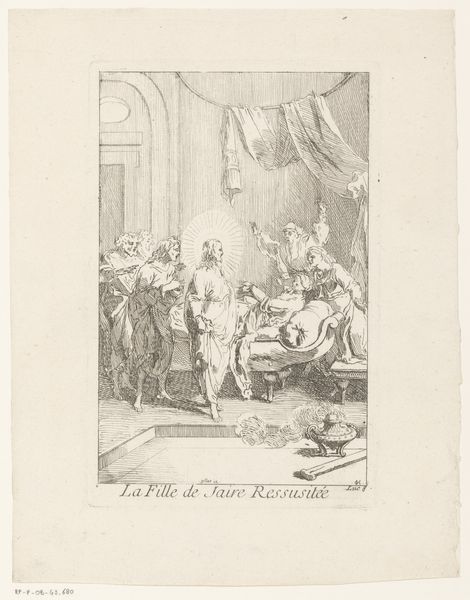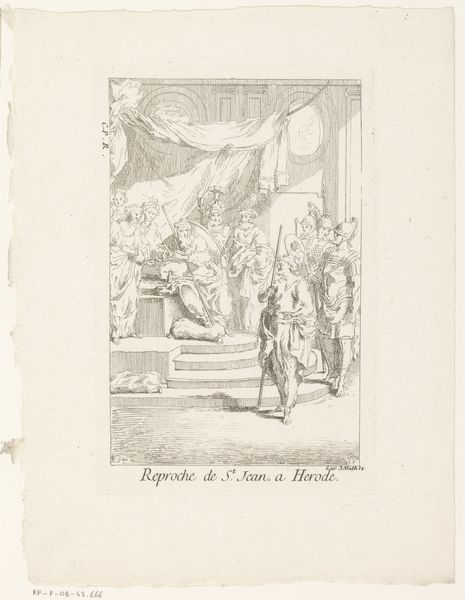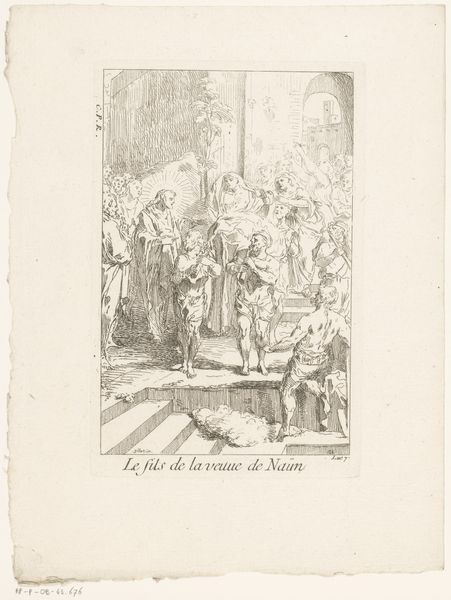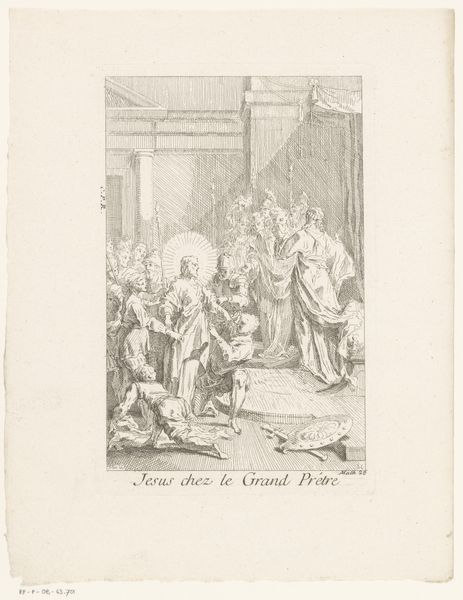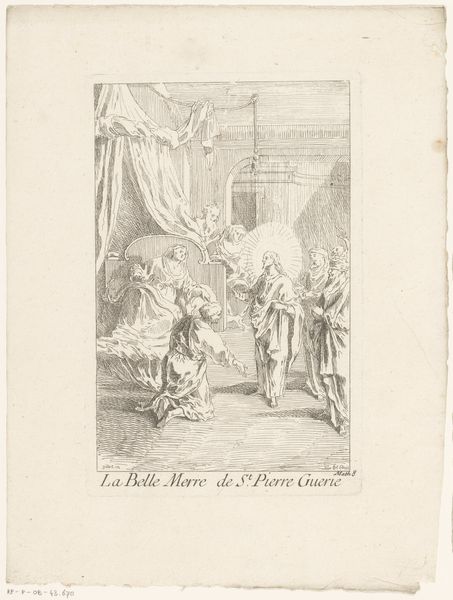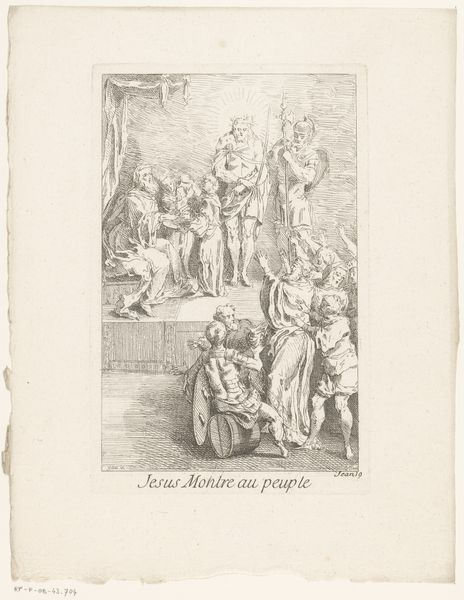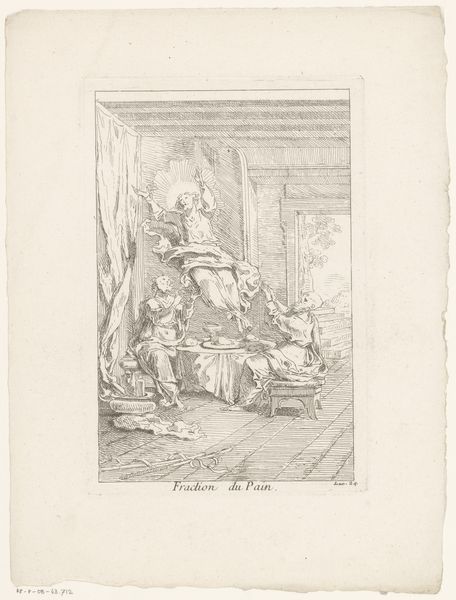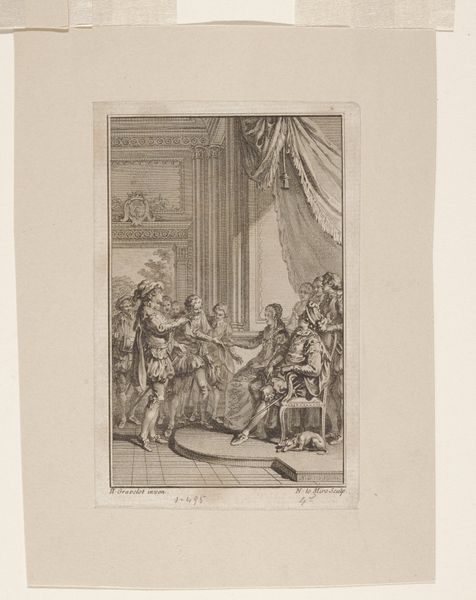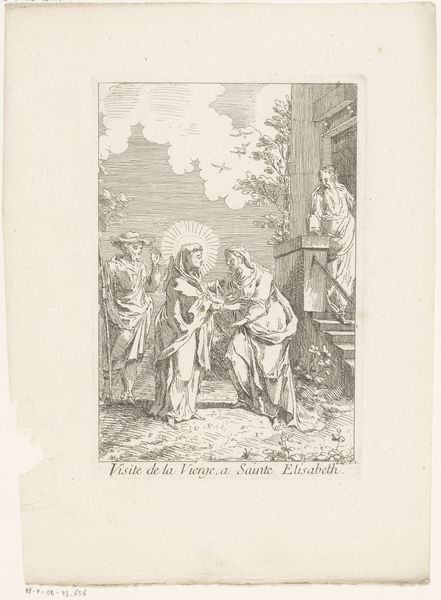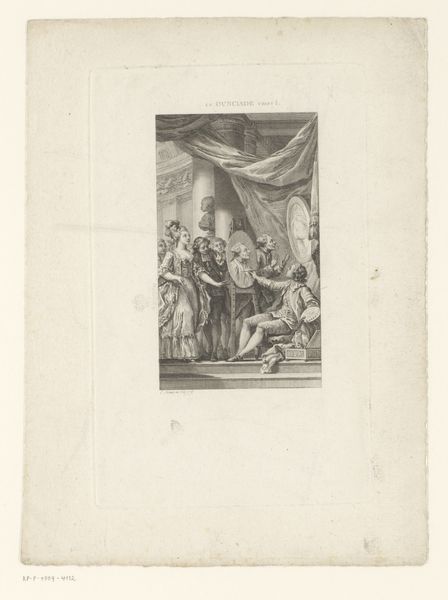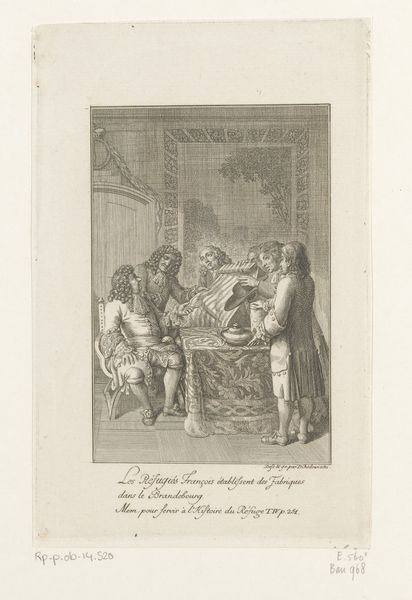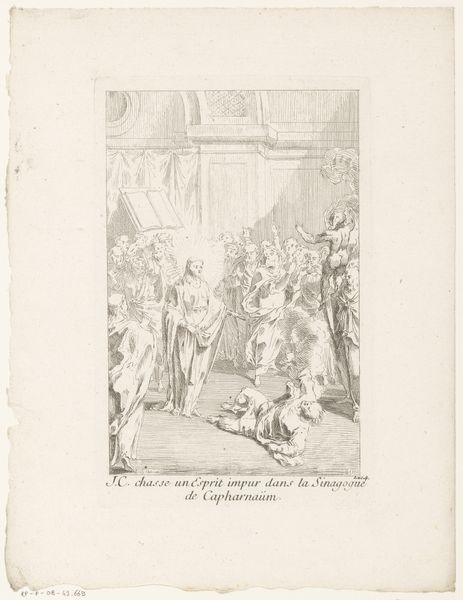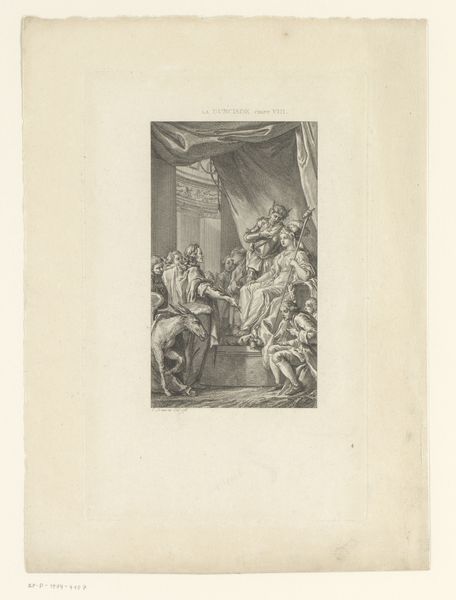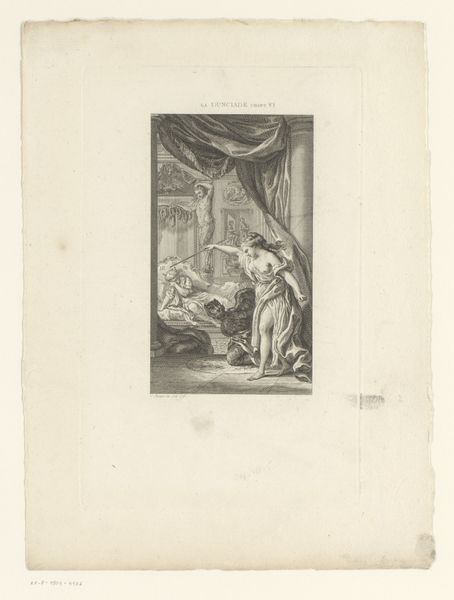
drawing, print, paper, pen, engraving
#
drawing
#
narrative-art
#
baroque
# print
#
pen sketch
#
figuration
#
paper
#
pen
#
history-painting
#
engraving
Dimensions: height 198 mm, width 182 mm
Copyright: Rijks Museum: Open Domain
Curator: Before us is "Christ in the House of Martha and Mary," a work crafted before 1732 and currently held in the Rijksmuseum collection. It's attributed to Gabriel Huquier and presented as a pen and engraving on paper. What impressions does it give you? Editor: Well, first off, it feels like stepping into a hushed, rather intense debate. Everyone's got such serious expressions! You can almost hear the low murmur of theological discussion... and maybe Martha's frustrated sighs. Curator: Indeed. It’s a Baroque take on the well-known biblical narrative. Consider the era: domestic space becomes a site for theological reflection, even tension. Huquier's medium--print--multiplies this domestic drama, distributing the values inherent in the story for a wider audience. Editor: I am also struck by the spareness of line, considering its period. There’s not that overwhelming ornamentation often present in Baroque renderings. The sparseness creates a clarity which focuses us on the essential, stark message of the story being represented. Curator: Exactly, the reduction facilitates the printmaking process and aligns with certain strains of 18th-century religious thought that promoted simplicity and personal piety. How does that simplicity affect your understanding of the sisters' roles? Editor: I see it highlighting their fundamental personalities. Martha, eternally practical, worries over presentation; Mary, almost luminous, seems genuinely captivated. I'm guessing its designed to offer two models of approaching faith… or perhaps challenge domestic roles for women during its time. Curator: Precisely. The domestic sphere was, for women of the period, the expected arena for the demonstration of faith, piety, and duty. Do we emulate the actively productive Martha or the receptive Mary? That was certainly the issue at stake within both religious and secular discourse. Editor: Funny, even now, centuries on, that question lingers... Perhaps that is where the strength of this artwork truly resides! Curator: It indeed gives insight on gender expectations both within a theological, domestic space. Editor: Agreed. Definitely some food for thought!
Comments
No comments
Be the first to comment and join the conversation on the ultimate creative platform.
